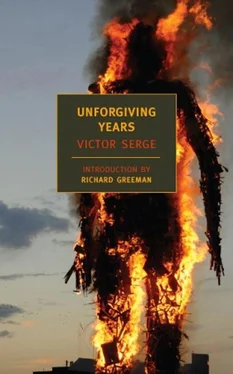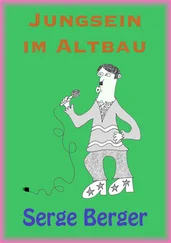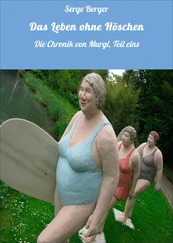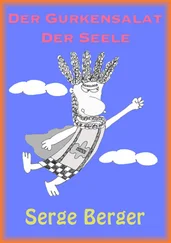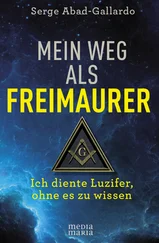* * *
Two or three times a year, the Battistis were visited by tourists on their way to take pictures of each other at Las Calaveras and under the picturesque candelabra cactus on the Cerro de Oro. They had even received copies of such snapshots in the post: sunny girls seated with grinning skulls between their knees, a young sportsman with movie-star looks. “You are a sage…” wrote the prettiest girl to Bruno, with news of her engagement… And yet he was disturbed by Mr. Brown’s dusty automobile the minute he saw it drive up. Harris alighted first. Then the archaeologist appeared, removing his sunglasses and glancing about like a dazzled white rabbit.
“Where did you pick up this specimen?” growled Bruno to Harris.
“A weirdo. He was camped out by the idol, measuring its nostrils. With a hamper full of choice bottles. He’s a complete idiot.”
Nothing abnormal in any of this.
Mr. Brown complimented Mr. Battisti: “Sir, you live in an absolute paradise…”
Mr. Brown placed a pair of blue-tinted spectacles over his gray, anemic eyes. He admired the coffee bushes, the euphorbia, the calabash grove, the mangoes, the eucalyptus, the tall royal palms… He had the gift of inarticulate appreciation. He brought out his field glasses to inspect Green Island, where there were pyramids, one of which was semicircular, a rare and probably very ancient design, between fifteen hundred and two thousand years old. The Cuicuilco pyramid was reputed to be older still…
“Ten thousand years!” declared Harris, all jovial.
“No! Really? I find that hard to believe…”
Harris gave him a vigorous thwack on the back, so friendly that the fellow pitched forward.
“We’re not even close by five thousand years, joker!”
Mr. Brown gave the stuttering laugh of the shy man, slave to erudition, who doesn’t realize he’s being made fun of. Daria found him repellent. “A machine for quantifying calaveras and pickling their statistics in useless file cards…” His magazines, with their recent American fashions, interested Noémi. In the course of a friendly chat skillfully managed by Bruno Battisti, Mr. Brown emerged as the owner of a business in Wisconsin; raised as a Presbyterian but personally an atheist, “scientific” as he put it, though deeply respectful of religion; rather conservative but with liberal leanings. When he completed his study of Mexican antiquities, he looked forward to lengthy sojourns in Peru, where the ruins of Tiahuanaco, in particular, merited close and conscientious description as the first phase of an investigation that would embark in an entirely unprecedented direction, taking account of… Mr. Brown spent several days at the plantation, happy to sleep in a comfortable bed and to lose at chess against Daria or Bruno, in serious games which he began cleverly and usually muffed toward the end, as though some inhibition prevented him from winning. He let fall something relevant to this, one day. “I went toward science because I was intimidated being successful at business… My father was extremely wealthy. Brown and Coldman, you’ll have heard the name?” “Nobody, in these mountains, has ever heard of it,” said Daria maliciously.
“Really?” said Mr. Brown with the look of a marionette that sometimes came over him.
Before the evening meal, he invariably changed into a dress shirt adorned by a floppy cravat the color of dead leaves.
* * *
The air at the end of an oppressive afternoon was supercharged with electricity. A ceiling of clouds weighed down on the place. All day, the plantation had been full of the sounds of restless animals; two peons had fought without being drunk. Flocks of lowflying birds enlivened the sunset, swarms of bats fluttered on the fringe of the night, but the immobility of the trees remained vaster than everything. For a second, outlined against the purple glow of the sunset, the tops of isolated palm trees looked like huge, black, curiously unhappy spiders… Daria and Noémi set the table with the maid, Melita, who was clumsier than usual tonight and broke two Jalisco pottery plates. Harris had left. Mr. Brown and Bruno Battisti were sprawled in deck chairs, exchanging desultory scraps of talk. Only the lightning seemed alive. It flashed and sheeted through the clouds, almost unceasing but erratic and freakish, there a stealthy glimmer, here a blinding flash, illuminating with lifeless whiteness a vast, sharply etched panorama void of color and movement. “This landscape,” said Bruno, “seems to be only the memory of itself…” After requesting a repetition of that sentence, the visitor gave a passive “Ah, yes.” With each crackling flash the two men glimpsed their own forms bleached white from head to foot, as though they had been turned into stone. “The storms won’t break for two or three days yet, you’ll see,” Bruno said.
“Ah, you think so?”
“It would be best for you, Mr. Brown, to go to the pyramids at first light tomorrow and return by midafternoon, to avoid being caught in a gale over the lake. The Indian canoes are very well built, but it’s a risk nonetheless…”
“Tomorrow at first light,” the visitor repeated apathetically.
“It’s no more than three hours’ rowing,” Bruno said, vexed by the groundless irritation he felt. “And one hour’s walk as far as the teocalli…”
“I’m thirsty,” said Mr. Brown. “Could you ask for a glass of water, please? I find this bath of electricity enervating.” A splintering glare exposed his livid countenance, mouth wide open gasping for air. Don Bruno reached for the little bell made of volcanic ash, and a gay tinkle rang out. Bare feet padded quickly over the tiles, a swarthy girl was illuminated, like a dancer in the jungle, by a flash of lightning. “A glass of water, Celia, for the señor…” “Thank you,” said Mr. Brown in a satisfied voice. “This tropical climate…”
“A climate of cosmic vigor,” Bruno said. “When you get used to it, you love it. A climate of destruction and fertilization…”
The archaeologist attempted a laugh. “I think we’re getting a darn sight more destruction than fertilization!”
“The opinion of someone who’s impotent,” thought Bruno, who was still beset by an old virility which sometimes tortured him and sometimes exalted him when in contact with young dusky flesh exuding a savage fragrance of sweat. “I disagree,” he said with effort. He was beginning to feel an unreasonable antipathy toward this guest.
The glimmers succeeded one another noiselessly in the sky; stars were coming out, and a distant grumble of thunder was heard. “Ah,” said Don Bruno. “I love this. The storms here are magnificent…” Mr. Brown lit a cigar; his austere profile shone in the yellow glow of the lighter.
It was a relief to both men when Noémi came out to announce that the table was set. Noémi had dressed up and looked ravishing in a long native dress, dark with leafy patterns. The material swished around her hips, her movements seeming to reveal her body’s hidden harmony. Her eyes bathed in lightning shone blue as phosphorus. Mr. Brown took her arm. “I love storms! They terrify me…” she said. “You have a lyrical nature,” he intoned, which made her laugh. “Can’t you find something sillier to say?” “Not really,” Mr. Brown replied, with his self-deprecating smile.
Dinner was a grand affair. Daria carved the turkey by the light of six candles ranged along the mahogany table on which little brightly colored napkins looked like square flowers. Orchids stood in amber goblets from Guadalajara. Safely away from the lightning, Mr. Brown recovered his good humor. “Allow me to fetch the last and best of my bottles…” Bruno offered to go with him. They came back from the car with a California red which was undoubtedly a treat, imitating the most alkaline and yet softly rounded of Andalusian vintages. Noémi apologized for not drinking it because Doña Luz had forbidden her. Her magnetic eyes met the benevolent eyes of Mr. Brown. “You don’t know what you’re missing!”
Читать дальше
